The Evolution of the Tropico Series
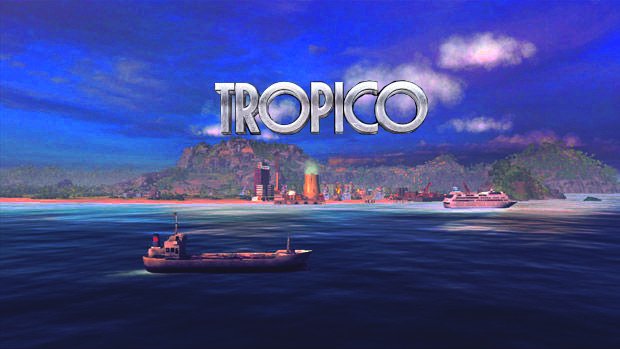
The Tropico games are a series of city management simulation games set on, as the name would suggest, a tropical islands. You are the ruler of these semi-democratic banana republics and are tasked to keep the afloat, both economically and politically.
Beginnings
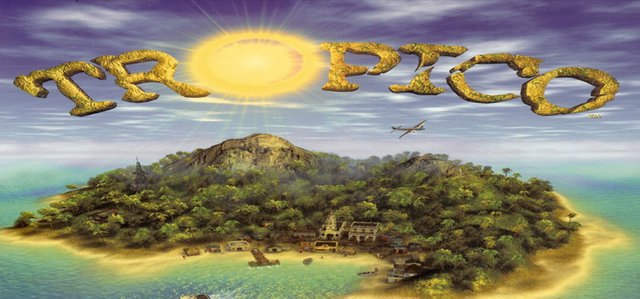
The original that started it all was developed by PopTop Software and released by Gathering of Developers and released on PC and co-developed and released by Feral Interactive on Mac. This happened in April 2001, a time when building and management games were at the height of their power, being developed as AAA titles, with such juggernauts as Rollercoaster Tycoon, Railroad Tycoon, SimCity and others dominating the scene.
So here comes in this small developer with a new quirky, more personal take on the genre. Instead of focusing on huge sprawling cities of tens or hundreds of thousands of citizens like its competitors, PopTop decided to stick to small island nations of a few hundred inhabitants that would have a great effect on the economy on social life. Thus, every one of them had their specific needs, traits and affiliations. This deep simulation took into effect the civil status, financial security, work and home environments to decide their actions. They would join the various factions and maybe even become their leaders.
All these factions would have different wants from you, their Presidente, such as free healthcare or housing for the communists, or better business opportunities for the capitalists, or more churches for the religious and so on. So in order to maintain power, the player had to satisfy their needs in order to get reelected, or just bribe or tend to the leader's needs, or outright defraud the elections. But doing so could anger the workers that could go on strike, protest, go into hiding in the surrounding forces and wage guerrilla warfare against you or stage a coup d'etat.
To quell such unrest, the players had multiple tools at their disposal, such as arresting the leaders, sending the military, but on a more peaceful side, issuing edicts to address the issues and building the relevant buildings or raising wages. The small scope of the game, made interactions with the citizens quite personal, and their plights important, so much so, that the heart attack of a dock worker could halt the islands economy by pausing the importation of raw materials or export of your goods, thus a lack of funds to pay the rest of the workers, thus causing a revolution leading an end of the adventure.
But before one started a game, picking your dictator from a slew of existing ones with different strengths and weaknesses, or alternatively, creating a totally new one, was crucial. The players would have to balance out those traits with the existing resources on the island in order to not anger the inhabitants and win the game after 50 years of cold war. The score was not only judged on how well the island was doing at the end of your reign, but also on the amount of funds managed to be siphoned out to your personal swiss bank account.
A new direction

Tropico 2 was developed by Frog City Software and released by the same publisher as its predecessor, Gathering of Developers in 2003 on PC and Mac. It kept the islands small, but instead of setting it in the Cold War era, it went back in time to the gold age of piracy, the player needing to balance different pirate factions instead of risking invasion from world superpowers like the USA or the USSR.
Now you were a pirate king, that would use slave labour in order to provide equipment, food, entertainment and a safe harbour to ships of outlaws that would go out and plunder. They in turn would return to trade and provide you with riches obtained during their adventures. The game also introduced a system that would essentially cover the two different populations on the island: the rowdy, anarchistic pirates and the slaves that had to be kept in check.
To provide both with what they needed, there were two auras generated by buildings. These were Anarchy that would provide happiness and increase the generosity of the pirates, and Order that would quell the slaves' attempts of revolt and create productive environments for the workers to create alcohol, weapons and other goods and offer better personal services to their masters and visitors. To do so, careful placement of buildings was needed, but would also generate gratuitous appearances of gallows and the like throughout the town, making it look like a theme park. Some people would like this, but personally, it's not for me, though I did like the fact that one could rename any building to whatever their heart desired, adding a nice touch. However, a campaign was created to satiate these needs in a more controlled environment.
The separation of populaces and the inconvenience of sending captives to work the pirate areas and keeping them in line probably turned some people off from the series. This, the lackluster sandbox mode, along with the pirate setting, when there were much better games at the time tackling this time period probably led to the downfall of the developer in 2006. This event would doom the series for a while, with no expectation of a continuation.
Revival
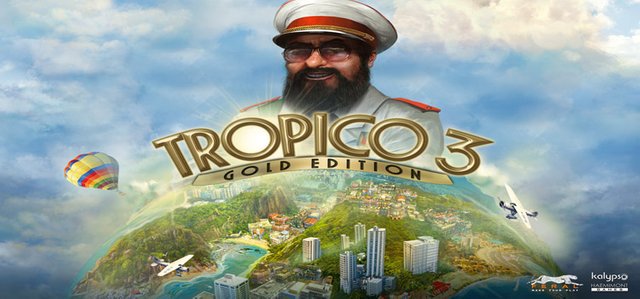
But in 2009, the bulgarian development studio, Haemimont Games, returned to the series' roots of the Cold War, releasing the game under Kalyspo Media on PC and XBox 360, with a Mac version coming out much later, in 2012.
It once again returned to recent history, in a lush tropical environment of a fictional green Caribbean island lorded by a dictator of your choosing, or of course an actual democracy, but where's the fun in that? The presentation was much improved over the original games though, now the world being rendered in full 3D, along with a beautiful colouring and full day-night cycle. Along with a more vibrant landscape came the ability to edit how your Presidente would look, now with the added ability to walk around the city in a full fledged avatar in order to buff certain aspects such as speeding up construction, better service in bars or, of course, holding speeches from the palace balcony.
The new game also added cars to the mix, thus making it a lot faster. This along with with larger islands capable of holding a few thousand citizens made the game less personal, but much more fluid. Leaders of factions could still be arrested or assassinated or bribed to sway their base, but knowing most of the population became very hard. However it did solve the problem where one man having some issues could bring the whole city to its knees. This was also achieved by more balancing and the fact that the economic system could be gamed easier, making local resources less vital.
The changes might have made the game less detailed and personal, but it was a great homage to the original. Scenarios were also added for those wishing for a campaign. This along with the addition of a radio that played wonderful thematic music, along with quips at the player's expense, whatever their actions, provided an entertaining and funny experience that brought much joy to old fans and newcomers alike. It surely brought back the name of Tropico and, once again, made it a strong presence in the industry.
Perfecting the formula
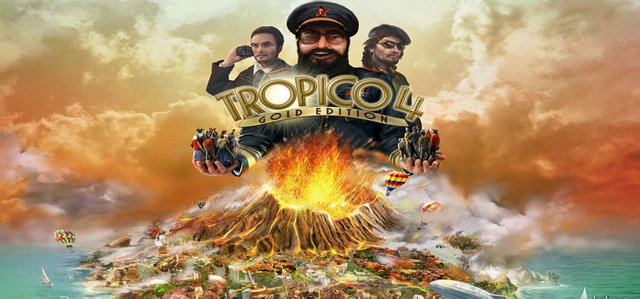
Tropico 4 was made and released by the same companies as its predecessor in 2001 on PC and XBox 360 with a later Mac version coming in 2013. It was very similar to the third entry in the series, not much having changed regarding gameplay. However, almost everything had been expanded and refined.
Roads were better, faction information could be much easily accessed, factories and service buildings had more options regarding local upgrades. There are also more options regarding the Presidente as well, more customisation and more abilities in game. Also his/her traits can now improve over time by spending the personal funds your greedy hands took a hold of from the nation's coffers. In the same vein, progression also exists when talking about building availability. Now a simple research system is introduced where some buildings can be built once some technology is discovered. Also some of these technologies add new upgrades or replace some structures with better, more modern ones.
There are also new factions introduced. Besides the major ones, the USA and USSR, there are smaller entities that will not invade, but will place embargoes or cause you to take a hit in reputation towards other factions or to some goals you're working towards; these are the European Union, China and the Middle East. They, along with local groups, will also provide certain quests that reward you with money, resources, building blueprints or special buildings.
All these additions and perfecting of the systems made for a more pleasant experience, but the over reliance on DLC that added a building and a scenario, and maybe some hats, and the lack of any meaningful new content didn't sit well with players that saw this game as a marginal improvement over its predecessor but a more empty experience overall.
More Improvement in the Latest Iteration
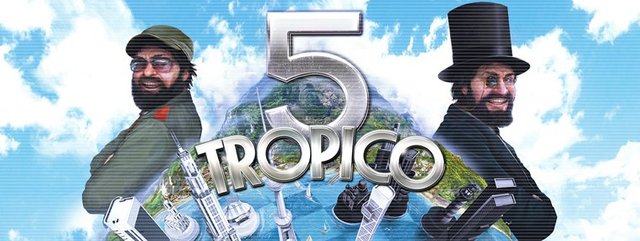
The latest sibling born to the franchise was once again developed by the same studio and launched by the same publishing company in 2014 on PC, XBox 260 and Mac, with a Playstation 4 version arriving in 2015 and an XBox One version later in 2016.
For the first time, competitive and cooperative multiplayer was introduced. Players could now compete and even wage war with each other, but also cooperate to share resources, give each other money, share workers and electricity. All this could be don on the same island, and up to four people could duke it out on the map.
Continuing the progression improvements, Tropico 5 expanded the timeframe it takes place in allowing for four distinct eras. Advancement is again done via research and accomplishing quests offered by world powers and resolving local faction grievances. This allows for the existence of sort of campaign when playing sandbox mode. The eras are as follows.
1 First there is the Colonial era where the two main faction are the loyalists that wish to remain under colonial rule, and revolutionaries that want independence. Only a handful of buildings and edicts are available to the player.
2 But once a constitution is drafted, the World Wars era starts. More buildings, research options and factions become available. The two superpowers are the Allies and Axis, that can offer you trade deals and quests that can help you advance and satisfy the new faction's needs on your island.
3 Then, there's the Cold War era, that we're all acquainted to from the previous games. It functions pretty much the same as the totality Tropico 4.
4 And then, there's the Modern Times that goes into the 21st century with advanced buildings, special edicts, tourism, green energy and even space exploration.
This new iteration also adds dynasties for the player to expand his/her reach. Each family member has their own traits that can be improved over time, either by doing certain quests, sending them abroad for education or spending personal money on improvement. They can also be used to manage important buildings and businesses around the island. They can later be used to start a new dynasty on another island as well.
In my opinion this is the densest game in the series, and offers the most varied and expansive gameplay, though the first era is pretty limited, it is short. Also, another downside is that it is probably the least personal experience of the lot, but it is much more rewarding when you do pick the right people for the right jobs, seeing your small beautiful, but flawed banana republic become a local powerhouse.
Conclusion and the future
This year at E3 a new addition to the series was announced, slated to be released next year. If the game evolves how it has up until now, I see a great game to be added to my library come next year. Hopefully they hire some new writers for more funny quips on the radio, and make the gameplay slightly harder but more fluid. In any case, whether it will be to my taste or not, Tropico has proven itself as a worthy franchise and is here to stay.
nice post!
Thanks, my dude!
The last trailer looks very nice and i will definitely give it a try. Keep posting and thanks for the info!
No problem mate. And yea, the trailer does look promising :)
So this is like The Cuban or Bolivarian Sims, don't know if I should laugh my arse off, or feel offended :)
Why feel offended? It's a lighthearted game that kinda goes after the cuban feel :)
upvoted @jero1
Thanks!
I've played every one so far, and can't wait for 6!! Not sure which is my favorite though. Probably 5 for the sheer fact it has more features in sandbox mode.
Only just touched on the firs two. My favourite is also 5 just for sheer amount of content, but Tropico 3 was most impactful to me, and I miss that ridiculous radio. Humour has gone down in quality, here's hoping 6 will come back strong :)
Tropico 5 defiantly needed to improve its combat system. And the gold mine is always fun to rush towards. This post really brought back a lot of good memories from this game. Keep up the good posts!
Thank you!
Yeah, the combat has never been good. But, you don't really play for that, though. Here's hoping Tropico 6 keeps the flair of the previous games with better combat :)